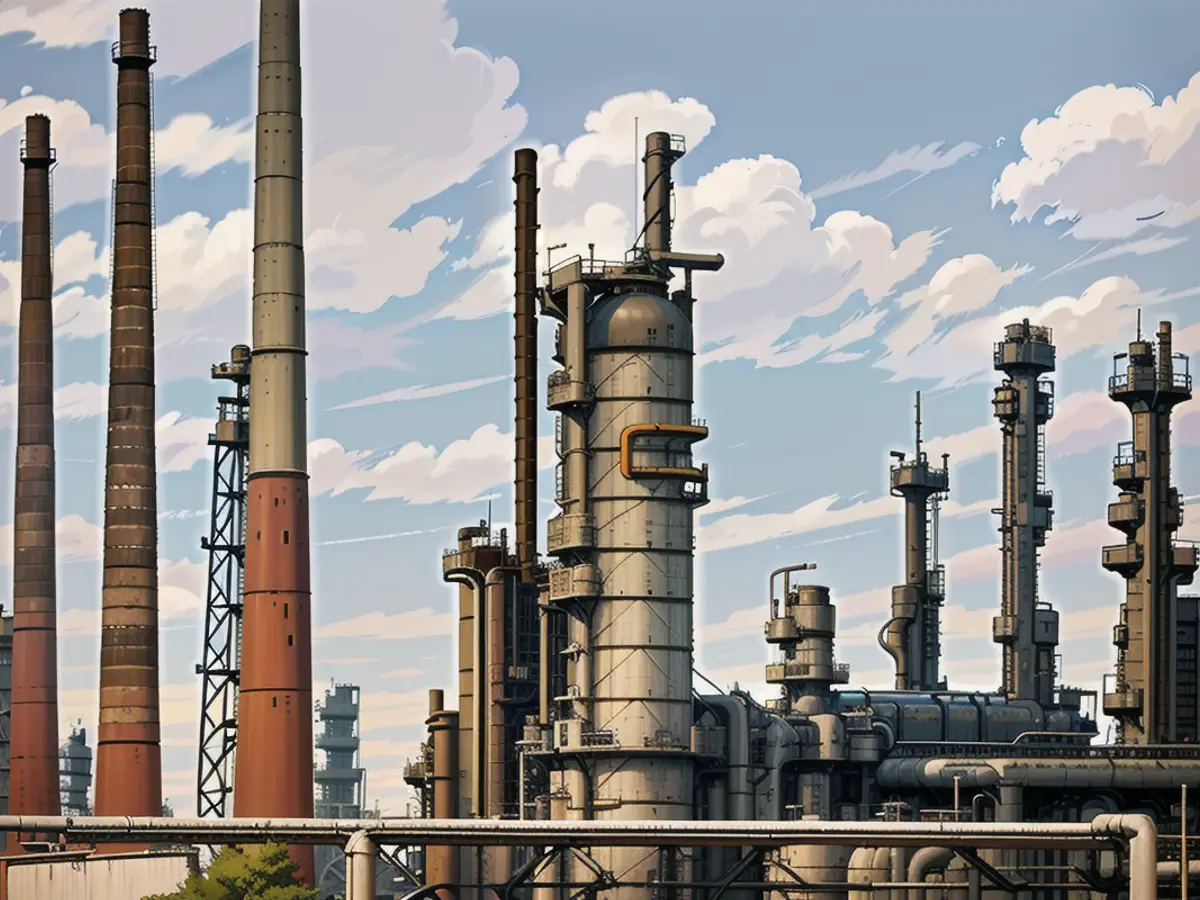A member of parliament on the left wing. - Kazakhstan aims to double its oil provision to PCK.
The Brandenburg refinery PCK in Schwedt might receive double the amount of crude oil from Kazakhstan in the future, according to Left Bundestag member Christian Görke. Kazakhstan is offering to boost its supply to 2.4 million tons annually, but Germany has yet to respond, Görke said following discussions with the government and energy firms in Kazakhstan.
Görke described this as irresponsible, adding that it missed the chance to increase the PCK output security and stability to 80-90%. The current utilization rate stands at around 70%, Görke said. He urged the federal government for explanation. Görke is worried about the site's security and jobs at the refinery, he added.
The PCK refinery, with a capacity of 11.5 million barrels of oil per year, supplies almost the entire northeast with heating oil, gasoline, and diesel. Due to Russia's aggression against Ukraine and the subsequent EU sanctions, the plant no longer receives Russian crude oil. Instead, it processes ship-borne oil from Rostock and Gdansk, as well as approximately 1.2 million tons of crude oil from Kazakhstan through the Druzhba pipeline, which passes through Russian, Belarusian, and Polish territory. Rosneft consortium, with a majority share, is still the plant's major shareholder; however, their shares are now under German trusteeship and are set to be auctioned by September.
To ensure the supply via the Rostock port, plans are underway to expand an existing pipeline. The federal government has promised roughly 400 million euros in subsidies for this. Nevertheless, the European Commission has not yet approved this. In response to Görke's inquiry, the government claimed it's "engaged actively" with Brussels. "No timetable can be given at present," their response states.
Read also:
- Tough return to normality in snow and ice
- Fewer unauthorized entries: Domino effect through controls
- Trial against BND employee from mid-December
- Xhaka leads Leverkusen to triumph in cup tournament, scoring two goals.
- The federal government is currently considering the expansion of a pipeline to ensure the supply of oil via the Rostock port, as mentioned by Christian Görke.
- The refinery in Schwedt, specifically PCK, has seen a shift in crude oil sources due to Russia's aggression against Ukraine and EU sanctions, now relying on ship-borne oil from Rostock and Gdansk, as well as oil from Kazakhstan.
- Following discussions with the government and energy firms in Kazakhstan, Left Bundestag member Christian Görke expressed concern over the German government's decision not to respond to Kazakhstan's offer to double its oil supply to PCK.
- The federal government has promised subsidies of around 400 million euros for the pipeline expansion, but the European Commission has yet to approve this, as reported by Görke.
- After Russia's exclusion, the PCK refinery in Schwedt is now heavily dependent on oil from Kazakhstan, transported through the Druzhba pipeline, which crosses the territories of Russia, Belarus, and Poland.
- Although the Rosneft consortium remains the major shareholder of the PCK refinery, their shares are now under German trusteeship and are set to be auctioned off by September, as per a recent development.
- Christian Görke, a Left Bundestag member, criticized the German government's inaction towards Kazakhstan's offer for increased oil supply, stating that it missed an opportunity to boost PCK's output security and stability beyond 70%.
Source: www.stern.de








